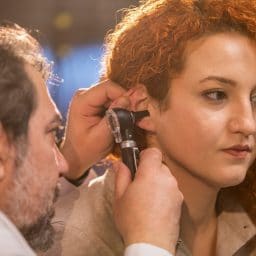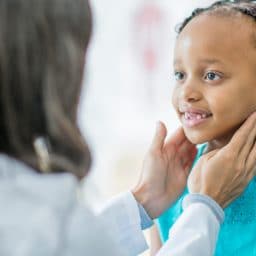How to Keep Your Voice Healthy

There are many different reasons why your voice may sound hoarse or abnormal from time to time, and some of these reasons are things that you can not really control. An example would be catching a common cold virus that causes laryngitis. Sure, you can wash your hands frequently and try to avoid people with…
How Do Allergies Affect Your Ears, Nose, and Throat?

Does your child have allergies? Allergies can cause many ear, nose, and throat symptoms in children, but allergies can be difficult to separate from other causes. Here are some clues that allergy may be affecting your child. Children with nasal allergies often have a history of other allergic tendencies (or atopy). These may include early…
Common Problems That Can Affect Your Voice

It may come as a surprise to you the variety of medical conditions that can lead to voice problems. The most common causes of hoarseness and vocal difficulties are outlined below. If you become hoarse frequently or notice voice change for an extended period of time, please see your Otolaryngologist (Ear, Nose, and Throat provider)…
What is a Voice?

“Voice” is the sound made by vibration of the vocal cords caused by air passing out through the larynx bringing the cords closer together. Your voice is an extremely valuable resource and is the most commonly used form of communication. Our voice is invaluable for both our social interaction as well as for most people’s…
Why Do Children Have Ear Aches?

To understand earaches you must first know about the Eustachian tube, a narrow channel connecting the inside of the ear to the back of the throat, just above the soft palate. The tube allows drainage — preventing fluid in the middle ear from building up and bursting the thin ear drum. In a healthy ear,…
When Your Child Has Tinnitus

Tinnitus is a condition where the patient hears a ringing or other noise that is not produced by an external source. This disorder can occur in one or both ears, range in pitch from a low roar to a high squeal, and may be continuous or sporadic. This often debilitating condition has been linked to…
Noise-Induced Hearing Loss in Children

The National Institute on Deafness and Other Communication Disorders reports approximately 28 million Americans have lost some or all of their hearing, including 17 in 1,000 children under age 18. Noise exposure is increasingly common in the age of iPods and other personal music players. Overexposure to noise can cause both temporary and permanent hearing…
Your Genes and Hearing Loss

One of the most common birth defects is hearing loss or deafness (congenital), which can affect as many as three of every 1,000 babies born. Inherited genetic defects play an important role in congenital hearing loss, contributing to about 60 percent of deafness occurring in infants. Although exact data is not available, it is likely…
What Are Your Child’s Risks of Being Exposed to a Contagious Illness at a Day Care Center?

Who is in day care? The 2000 census reported that of among the nation’s 19.6 million preschoolers, grandparents took care of 21 percent, 17 percent were cared for by their father (while their mother was employed or in school); 12 percent were in day care centers; nine percent were cared for by other relatives; seven…
What You Should Know About the Cochlear-Meningitis Vaccination

Children with cochlear implants are more likely to get bacterial meningitis than children without them. In addition, some children who are candidates for cochlear implants have inner ear abnormalities that may increase their risk for meningitis. Because children with cochlear implants are at increased risk for pneumococcal meningitis, the Centers for Disease Control and Prevention…